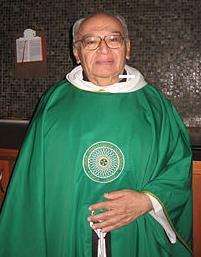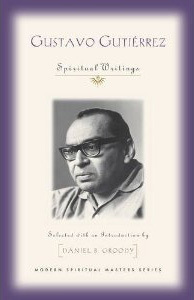
Since it began to be used nearly a half century ago, the term “liberation theology” has been provocative and susceptible to caricature. Ideologues of the right and left respectively denounced and extolled its impact on the Third World, particularly on Latin American Christians who found in its “preferential option for the poor” a summons to confront and transform oppressive military regimes and economic structures, sometimes in alliance with armed revolutionaries. The excitable television commentator Glenn Beck has recently gone so far as to assert that liberation theology equates salvation “with minorities achieving economic and political parity, via redistribution of wealth with whites.”
The controversial phrase was coined by Rev. Gustavo Gutiérrez, O.P., whose 1971 book, “A Theology of Liberation: History, Politics, Salvation,” is widely considered the most influential and lasting expression of liberation theology. The Peruvian Father Gutiérrez, whose official academic title is the John Cardinal O’Hara Professor of Theology at the University of Notre Dame, also holds the unofficial, and perhaps more widely known, title of the Godfather of Liberation Theology.
According to Rev. Daniel G. Groody, C.S.C., associate professor of theology and director of the Center for Latino Spirituality and Culture in the Institute for Latino Studies at Notre Dame, too many people “have misunderstood and misinterpreted the connection between Gutiérrez, liberation theology, and Marxism, and some critics of Gutiérrez see liberation theology as some kind of ‘warmed over’ Marxism with a religious mask. But nothing could be further from Gutiérrez’s own vision.”
Partially in order to address such misunderstanding and misinterpretation, Father Groody has selected, edited, arranged and introduced an anthology of writings from Father Gutiérrez’s most significant works, including “On Job: God-Talk and the Suffering of the Innocent,” “We Drink from Our Own Wells: The Spiritual Journey of a People,” and “The God of Life.”

The result, “Gustavo Gutiérrez: Spiritual Writings,” will be published in November by Orbis Books as part of its Modern Spiritual Masters series.
Enrollment in that series of 43 variegated 20th century spiritual writers places Father Gutiérrez in impressive company. Other such masters include Saint Therese of Lisieux, Jean Vanier, Mother Theresa of Calcutta, Metropolitan Anthony Bloom, Flannery O’Connor, Pope John XXIII, G.K. Chesterton and Dietrich Bonhoeffer, to name only a few.
And Father Groody, his colleague and friend, thinks this is exactly the sort of company in which the Godfather of Liberation Theology belongs. Because what drives Gutiérrez’s theology, he says, is not a secular or political ideology but a spiritual insight, a realization of God’s utterly gratuitous love for all human beings. Father Groody laments the fact that so few people “know the profound spirituality that has forged Gutiérrez’ theological vision.”
Father Gutiérrez himself has described that vision quite starkly: “The theology of liberation is about God,” he wrote. “God’s love and God’s life are, ultimately, its only theme.”
“No theme shapes the writings of Gutiérrez from beginning to end more than the gratuity of God,” Father Groody says. “This gift of gratuitous love, made known above all in the gift of Jesus Christ, is about God’s total acceptance of every human being without regard for their moral or spiritual condition.
“Without gratuity, the Gospel makes no sense, nor does the challenge of justice and a steadfast commitment to the poor. The focus of Gutiérrez is not volunteerism, altruism, or humanism. For him the faith that does justice is a response to the God who has first loved us. Gratuity reveals the love that makes human beings whole, and without love, there is no Christian spirituality, no genuinely human life.”
Father Groody worked on the new anthology in close consultation with the 83-year-old Father Gutiérrez, and as they were nearing its completion, he asked his friend how he would like his life and work to be remembered. With predictable shyness, the older man demurred, but Father Groody pressed the question. “I hope my life in the end tries to give testimony to the message of the Gospel,” Father Gutiérrez finally said, “above all that God loves the world and loves those who are poorest within it.”
In a few weeks, a paradoxically rich sample of that legacy will be available.
Originally published by at newsinfo.nd.edu on September 09, 2011.